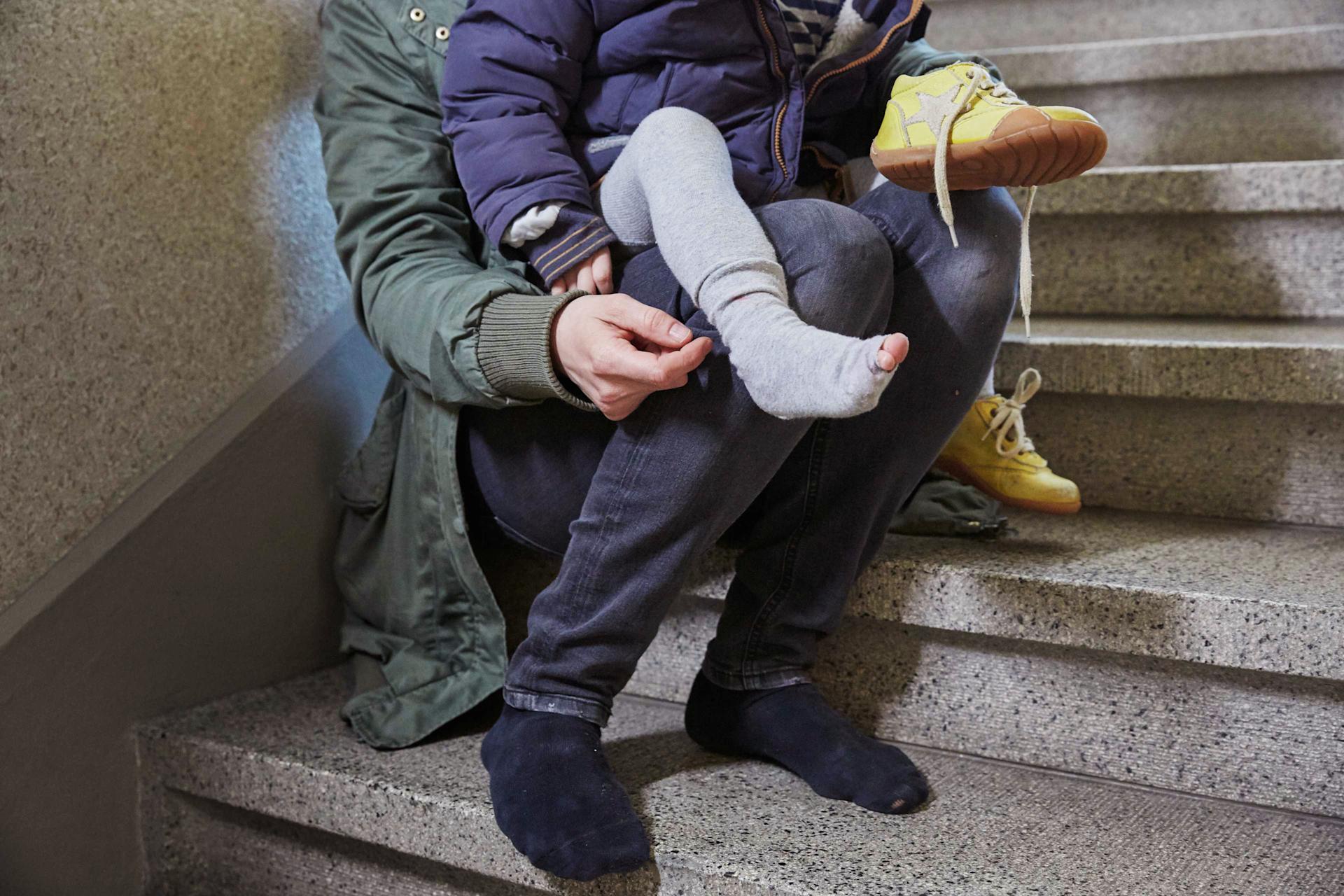
Culture Percentage
How is a choreography created?
Two professional dancers are now presenting their first own choreographic routine at the Steps dance festival.
navigation

Migros Commitment
1.4 million people in Switzerland are living in or at risk of poverty. They suffer in silence. Hardly anyone notices them. Marco and Elisabeth want to be noticed. They reveal what life is like with barely enough money for the essentials.
"Money isn't the most important thing," Elisabeth says. Yet almost everything in her life revolves around precisely that. Elisabeth is a single parent living in canton Aargau with her two children (aged 11 and 13) on CHF 3,200 a month. That's well below the poverty line. Yet she remains positive: "We always pull through somehow."
Elisabeth is one of 700,000 people in Switzerland who are officially classified as poor because they earn less than CHF 2,315 a month in the case of individuals or CHF 4,051 for a family with two children. Trained car mechanic Elisabeth is part of the particularly vulnerable group of single parents. That's because it's still difficult to combine looking after children and having a decently paid job in Switzerland.
I'm always doing the sums, trying to work out where I could save money. Even at night.
The 44-year-old doesn't want to apply for welfare benefits, for fear of falling into debt, but also out of pride. She'd rather be poor than dependent. While Elisabeth gets on well with her children's father, he can't contribute much financially. She works three jobs to make ends meet. All are paid by the hour and fluctuate significantly by season, but they're flexible. "My children need me more than money," she says. So she works hard every single day to give them a good life, including leisure activities and holidays. The fact that both children are musical and athletic makes her proud. She's set aside her own dreams for the time being. "I have an annual budget which means I have to constantly do the sums, meet targets, weigh things up and ask for help. I never get a break." This may be what's causing her chronic urticaria.
"People living on a tight budget are under constant pressure to make ends meet. They often don't have much of a social life and tend to be less healthy. It's a vicious cycle," says Andreas Reinhart, the press spokesman for Caritas Zurich. "Every day, we see more and more people are living at their financial limits. We now have longer waiting times at our debt counselling service, and never before have so many people shopped at Caritas markets." The rising cost of living is turning a growing number of people in Switzerland into working poor. This means people who have a job, but must consider every expense carefully.
Marco is another member of the working poor. He's not poor according to the official definition, but at risk of poverty. The father of three girls aged between 11 and 14 works full-time as a sous-chef at a high-end restaurant in Lucerne. He earns CHF 5,100 net. "When my wages arrive at the end of the month, I pay all my outstanding bills first. We then try to make ends meet for the month using the remaining CHF 200-400." Even one daughter's school camp is beyond his budget, and he's ashamed of his girls' ancient bicycles. When his heating bills rose by CHF 3,000 a year, he couldn't sleep for nights on end. Asked what he would like to be able to afford, he thinks long and hard before replying, "A visit to the hairdresser." More importantly, he needs to get back to full health. He's still suffering from the consequences of a life-threatening aortic tear. He simply can't afford to be ill.
I didn't choose to be poor, but I'm often made to feel that way in Switzerland.
According to the Federal Statistical Office, almost a fifth of people in Switzerland can't cope with an unexpected expense of CHF 2,500. Single-parent households, large families, the poorly educated, senior citizens and those with a migration background are at particularly high risk.
Family man Marco isn't ashamed of having little money. "I wear old, cheap clothes and we never go on holiday," he says. His greatest concern is people judging him for being poor. "I didn't choose to be poor," he says. Single mother Elisabeth doesn't see herself as a victim either. "I always find a solution. I haven't done anything wrong," she says. The thing she finds shameful is "people who look the other way instead of helping."
What gives these two people hope for the future? Elisabeth dreams of getting an admin job with flexible working hours. And what about Marco, the trained chef who cooks for the rich and famous in Lucerne? He wants better pay and free day schools for his daughters. "That would give my wife a better chance of finding a good job."
We have been committed to society and culture for more than 80 years . Explore our wide range of activities and be inspired.